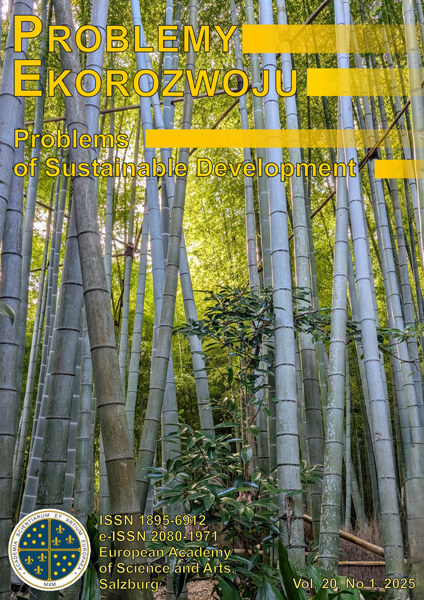Sustainable Capitalism: A Matter of Ethics and Morality
John Ikerd
University of Missouri, USA, Professor Emeritus of Agricultural Economics, 5121 S. Brock Rodgers Rd, Columbia, Missouri, USA (United States)
Abstract
With the fall of communism, capitalism became the dominant global economic system. However, widespread environmental and social problems are raising fundamental questions regarding the sustainability of today’s capitalist economies. In fact, the most basic laws of science indicate that unrestrained capitalism is not sustainable. All economic value is inherently individualistic in nature, thus there is no economic incentive to do anything for the sole benefit of anyone else and certainly not to ensure the sustainability of future generations. Attempts to ensure sustainability by assigning economic values to ecological and social costs and benefits inevitably result in undervaluation and misallocation of social and ecological resources. Economic sustainability requires a fundamentally different economic model based on a paradigm of living systems. Living systems are capable of productivity as well as regeneration, and thus sustainability, because they rely on solar energy. Sustainable agriculture provides a useful metaphor for sustainable economic development. However, a capitalist economy can function sustainably only within the context of an ethical and just society. Lacking ethical and moral restraints,capitalists inevitably degrade and deplete the natural and societal resources from which all economic value is derived.Most nations already have in place the institutional structures needed to restrain unsustainable economic extraction and exploitation. All that is lacking is a moral and social commitment to an ethic of stewardship, a commitment to rightness and goodness in our relationships with each other and with the earth.
Keywords:
sustainability, capitalism, economics, entropy, living systems, sustainable agriculture, social morality, environmental ethicsReferences
D. H. Meadows, D. L. Meadows, J. Randers, and W.W. Behrens III, The Limits to Growth, New York, 1972.
Google Scholar
The World Commission on Environment and Development, Our Common Future, ed. G. Bruntland, 1987.
Google Scholar
P. Hawken, A. Lovins, and L. H. Lovins, Natural Capitalism, New York, 1999.
Google Scholar
R. D. Putnam, Bowling Alone, New York, 2000.
Google Scholar
J. E. Ikerd, Sustainable Capitalism: A Matter of Common Sense, Bloomfield, CT, 2005.
Google Scholar
Ikerd, Sustainable Capitalism, Chapter 3.
Google Scholar
V. Pareto, “Sunto di alcuni capitoli di un nuovo trattato di economia political del prof, Pareto,” Giornale degli Economisti, no.10, (1900): p. 223, translated by L. Bruni, in The History of Happiness in Economics, London, 2004.
Google Scholar
J. Brewster, A Philosopher Among Economists, eds. P. Madden and D. E. Brewster, Philadelphia, 1970, pp. 60-61.
Google Scholar
J. Ikerd, Sustainable Capitalism, Chapter 5.
Google Scholar
A. Howard. An Agricultural Testament, Oxford, 1940.
Google Scholar
J. I. Rodale, The Organic Front, Emmaus, PA, 1949, Chapter 8.
Google Scholar
R. Steiner, Spiritual Foundations for the Renewal of Agriculture. ed M. Gardner, Junction City, OR, 1993, original copyright, 1924.
Google Scholar
A. Smith, An Inquiry into the Nature and Causes of the Wealth of Nations, fifth edition, ed. E. Cannan, London, 1904, original copyright 1776, Book 1, Chapter 8, paragraph 55.
Google Scholar
Smith, Book 1, Chapter 11, paragraph 237.
Google Scholar
Authors
John IkerdUniversity of Missouri, USA, Professor Emeritus of Agricultural Economics, 5121 S. Brock Rodgers Rd, Columbia, Missouri, USA United States
Statistics
Abstract views: 17PDF downloads: 53
License

This work is licensed under a Creative Commons Attribution-ShareAlike 4.0 International License.




